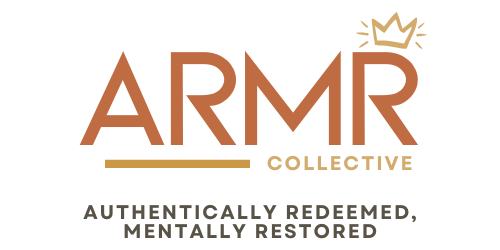“If I only had ___, then I could do ___.”
I’ve used so many words in these placeholders and trapped myself in my own expectations and limitations. I’m always on the lookout for more resources, more opportunities to grow. But in the meantime, I don’t move. I ask God for more, more, more so I can do more, but what if this is the wrong way to go about it?
What if we already have what we need?
I realized I got stuck in a pattern of constantly seeking the perfect situation, the perfect product, the perfect amount of money before diving in. But instead of seeking, we should instead focus on stewarding.
Gluttony doesn’t look like how it used to. Society has given us more things to consume other than just food. Modern gluttony isn’t overeating or overindulging anymore; it’s uncontrolled consumption without application or action.
Modern Gluttony Defined
Traditional Gluttony vs Modern Gluttony
When I think of “gluttony”, I automatically think of food overconsumption. But modern gluttony is so much more than that. It’s a constant need for MORE in every area of life. It’s a mindset of “more is ALWAYS better”. Instead of using what God has given us, we focus on what He hasn’t and how we get what we think we need.
The “Not Enough” Mentality
When I was about to start working on ARMR Collective after delaying and refusing to do it, I found myself stuck in this modern gluttony mindset. I “needed” to buy a new notebook to write my outlines in. I also “needed” new pens to write with so I could color-code everything. But, oh wait, I also need stickers to make it more enjoyable and, ah, I need some washi tape too so I can decorate my notebook. While I’m at it, I also need a calendar to write all my content on so I can plan it out, but the one I ordered isn’t big enough, I need to get a new one that has more room—
You see where I’m going with this?
Instead of working with what I already had, I fell into a buying frenzy, acquiring things I thought I needed to get started, when I could’ve started without any of that stuff. The “not enough” mentality makes us think we’re always lacking something before we can start. We’re stuck waiting for the perfect conditions and perfect resources to begin. And instead of stewarding what we have or starting the creation process, we get stuck consuming.
When we spend all our time preparing, we’re never able to get started.
Skipping Ahead Syndrome
Other times, we can’t get started until we have the entire plan. Every detail of every second needs to be planned out before we can start the project. The problem with this is, God doesn’t like to give out the entire plan. I can’t tell you how many times I’ve asked for more details about ARMR’s future only to get “just keep writing”. I’d love to know what’s going on, but I’ve learned to trust the simple answer even when I want the complex plan. Sometimes we get stuck asking for steps 3 and 4 when we haven’t even done steps 1 and 2 yet.
All of these patterns stem from the same root problem. We’re asking God for what we think we need instead of offering what we already have.
Biblical Framework: Feeding of the 5,000
The perfect example of this is the feeding of the 5,000 in John 6. During one of Jesus’s sermons, the crowd started to get hungry. They were far from the town, and food delivery wasn’t an option! The disciples started talking about if one of them should go into town to get food, but they didn’t have much money, let alone money to feed over 5,000 people. Eventually, the disciples found a young boy who offered up his meager lunch of 5 loaves of bread and two fish. It seemed so pathetic compared to the need. After blessing the food, Jesus miraculously multiplied the food and fed all 5,000 men along with the women and children with them. Not only was every single person fed, but there were twelve baskets of leftover food.
Jesus took what was available, not what was missing, showing that God multiplies faithfulness with what already exists.
Modern Applications of Gluttony
So, if modern gluttony isn’t the overconsumption or overindulgence of food, what is it? I’ve broken modern gluttony into five main “categories”, ranging from information hoarding to resource obsession. Here is how modern gluttony can show up in our everyday lives.
“I need to learn more before I start.”
What might start as a way to learn something new can easily turn into paralysis. Listening to podcasts, watching videos, and reading books is great—but only if that information turns into application. “I need to learn more before I start” is valid but what happens when this turns into an obsession with knowledge without implementation? Analysis paralysis starts to disguise itself as preparation. “I’ll start once I learn everything about ___.” And this may be the case, but how many times will you stop yourself from doing something under the guise of learning more or preparing more? Knowledge without application or implementation is information hoarding. Wisdom comes when you finally apply what you’ve been learning.
“I need to know the details of where I’m going.”
Sometimes we get impatient with the process and try to skip ahead. This can look like asking for advanced strategies before mastering the basics. We want the “secret sauce” instead of doing the foundational work. We might be on step 2 but read ahead about step 10 content when we’re not actually ready for it yet. The basics get monotonous and boring, so we try to skip ahead to the “fun part”.
I’m guilty of this with ARMR. I want detailed plans on what to do next instead of following the simple directions I’ve already been given. When we skip ahead and start consuming the next level’s content, we miss the basic lessons we need to succeed in that next level. I’m someone who wants to be the best at something right at the beginning. I get impatient with the slow growth most things take and want to skip ahead to looking at publishing a book based on ARMR or a random film idea. When in reality, I’m nowhere ready for that just yet, just operationally. It can be hard, but we have to do what we can with what we already have before expanding to the next step.
“I need better equipment first.”
Circling back to the twenty rolls of washi tape and thousands of stickers I have, I thought I needed all this random stuff to get started with ARMR. What’s funny is I don’t even use any of it anymore! This can happen in other areas of life too. “I need better equipment first” can become another trap to fall into. We might wait for a perfect setup or for perfect circumstances. Just like with information hoarding, we might start hoarding technology or relying too heavily on technology instead of developing the skills we need. We might compare our resources to others’ and think we need their same setup to be successful. If we spend all our time gathering tools and resources, we’ll never get started, and we’ll get stuck in this loop of overconsumption.
“When the timing is right…”
How many of us get stuck waiting for the perfect time to do something and before we know it, it’s too late? We want all our circumstances to line up perfectly before we move. In doing so, we almost reject small beginnings and expect to be catapulted up to the top in one fell swoop. With ARMR, I started outlining ideas for posts first. I wanted to wait until I had enough content to start writing. And then I wasn’t going to post until I had a few drafts written up. I wanted to write out an entire launch plan and plan it for way out in the future. But I had ONE post written, and God told me to hit publish. Even now, He’s telling me to start scaling ARMR Collective NOW when I thought that wasn’t the plan for at least six more months.
If we wait for the perfect time, we get stuck in perfectionism paralysis. We’ll prepare and prepare and consume and consume but never lift a finger to apply anything. The timing will never be 100% right, and God wants to use us where we’re at, not where we think we want to be.
“I need to understand more before I can help others.”
Being a Christian, especially if you’re new, can be intimidating. It seems like there’s so much to know and learn, and it feels like all eyes are on you. Even if you’ve been a Christian for a long time, it’s easy to feel “unqualified” to share your faith. We might start collecting teachings without actually practicing them. Maybe we throw ourselves into our Bibles, learning all we can, trying to memorize verses so we “know what we’re talking about”. We might hop from church to church, from conference to conference for the next “revelation”.
Before we know it, trying to prepare to share the gospel turns into information hoarding and spiritual entertainment instead of spiritual formation. We become consumer Christians instead of participating in our faith.
Instead of internalizing what we’ve learned and applying it to our lives, we seek change from an external revelation and expect it to do the work in us and for us.
Instead of doing the healing work, we bury ourselves in content about healing work and avoid our own transformations.
Maybe the knowledge we’re learning feels like spiritual armor. We think if we know enough, we’ll be able to predict and handle any situation. Or maybe we want to avoid our own vulnerabilities; reading someone else’s stories might feel safer than sharing our own. We’re afraid of not being “Christian enough”, so we devour sermons, podcasts, and Bible excerpts so we’re prepared for any question someone might ask. We need to make sure we’re as spiritually mature as other believers.
We think we need to become experts before we can be authentic. But our messy authenticity is actually what God uses most powerfully—just like the boy’s tiny lunch.
Mental Health Impact of Modern Gluttony
Analysis Paralysis and Anxiety
It’s no wonder overconsumption makes us freeze. We get so overwhelmed by so many options and develop decision fatigue from constant consumption. Our forever-long preparation induces a fear of starting without being “ready”. Instead of just doing something, we start procrastinating until everything is perfect.
Step-Skipping Frustration
On the other hand, we might get frustrated with what God wants us to do. We want to know the entire plan and details of every step before we move. When God tells me to “just keep writing”, I’m like, “great, but then what?” Anxiety starts to eat at us from not knowing the whole plan, and we get discouraged when directions feel too basic. We start to feel like we’re behind compared to those who seem further ahead than us. Instead of learning the basics like they might’ve, we want to skip ahead to where they are. Impatience gnaws at us, and we miss the foundational steps we need to get ahead.
Comparison and Inadequacy
Comparison is a dangerous trap to fall into. If we’re constantly measuring our resources against others’, we never feel ready or qualified until we have the things they have. Overconsumption leads to imposter syndrome because we’re told, especially on social media, more is ALWAYS better. But when we have everything and still feel the same, we think there’s something wrong with us or that we just need MORE. More rolls of washi tape isn’t going to make ARMR any better (and I’m going to run out of room)!
Chronic Dissatisfaction
When we’re constantly seeking more, nothing ever feels like enough. Our hyperfixation moves onto the next thing—“I need a better camera”, “I need a better microphone”, “I need more pens”. We’re never able to be content with the resources we do have. Restlessness wracks our bones, and we strain our necks with our constant seeking. And, in turn, we’re never satisfied.
Spiritual Emptiness Despite Consumption
Feeling hollow while sitting through a powerful sermon, waiting for it to change us, translates into a lack of purpose from non-participation. Even with church, we can develop consumer guilt and shame cycles. If we’re consuming content in a sort of a frenzy, we’re not actually absorbing it. And if we’re not doing the internal work and applying what we’ve learned, we can get disconnected from our spiritual gifts and our callings.
So how can we break out of this cycle of modern gluttony, stop consuming, and start applying?
Breaking Free from Modern Gluttony
The Stewardship Shift
God has really been leaning in on stewardship in my life lately. If I can’t take care of what I have, how can I expect to have more? We need to shift our attitudes from “what do I need?” to “what do I have?” Just like how Jesus multiplied the boy’s lunch, we need to start small with the resources we do have. Even starting with a gratitude journal or creating a gratitude list everyday can shine a light on the things you already have to work with. You might be surprised by all the knowledge you already have. Instead of collecting more, create with what you have. Before consuming more, start implementing with what you know.
Make a list of what you already have: skills, knowledge, tools, connections. Of the things in that list, are there any resources that are underused or completely unused? Place a boundary on yourself to stop new accumulation until you’ve used and stewarded what’s already existing. Pick ONE thing you already know or have. Commit to using it before seeking more and trust God to multiply your faithfulness.
Embrace the “Just Keep Writing” Moments
When we get simple instructions, it’s natural to want to know more. Where is this headed? What will we do when we complete step 1? What’s the entire plan? God likes to reveal steps one at a time, which is great for me, because I get overwhelmed very easily! We have to master our current step before asking for the next and find peace in not knowing the entire plan. This is where trust comes in, and trust can feel counterintuitive. But I’d venture to say that’s the whole point of faith.
If you don’t know where to start, try and identify what basic steps you might’ve been avoiding. Do the simple thing before seeking the more complex strategies. You can practice obedience with small instructions with a little bit of faith and a lot of trust.
I see now why God told me to “just keep writing”. If I had put off writing this post, I wouldn’t have seen so clearly that it’s time for me to move and start scaling ARMR even though I don’t feel ready. I usually write about things I’m experiencing in real time—I’ve never written something I haven’t personally experienced—but, WOW, this one hit me hard!
Present Moment Faithfulness
Consistent actions will prevail over perfect conditions any day. Take small steps with what exists. Make today’s opportunities a priority, rather than tomorrow’s possibilities. This also helps with overwhelm. Too much information can overload your system and cause fatigue and anxiety. Set mental health boundaries for yourself and limit your information intake. Create your own definition for “enough” content. We can also practice contentment with what we currently have.
Your Lunch Moment
God’s miracles always start with something we already have. Instead of asking, “What do you need?”, He asks, “What do you have?” Modern gluttony tries to keep us from offering our small lunch. It convinces us that we need more in order to do more. But more than 5,000 people were fed with only five loaves of bread and two fish, WITH leftovers to spare. Our breakthrough isn’t in getting more—it’s in giving what we already have, no matter how insignificant it may seem. Sometimes stewarding what we do have IS the miracle strategy.
Our God meets us where we’re at. All we have to do is listen and MOVE.
What’s your “five loaves and two fish”? What simple step are you avoiding while asking for complex plans?



